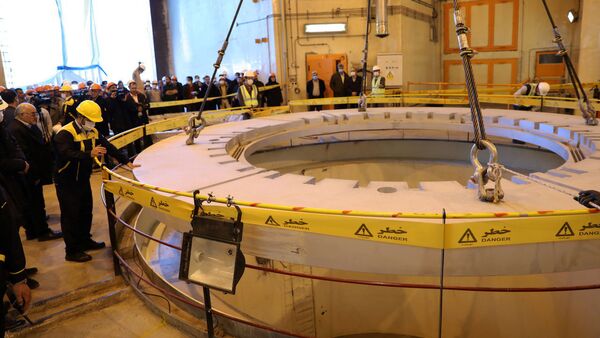On Tuesday, Iranian Foreign Ministry Spokesman Seyyed Abbas Mousavi clarified Foreign Minister Javad Zarif’s recent statement on the possibility of Tehran’s exit from the Treaty on the Non-Proliferation of Nuclear Weapons, commonly known as the NPT.
“What Zarif stated in the Parliament was a part of provisions of a letter penned by the [Iranian] President Rouhani to the heads of 4+1 Group in May 2019 on announcing Iran’s reducing of its commitments” under the 2015 Iran nuclear deal, also known as the Joint Comprehensive Plan of Action (JCPOA), Mousavi said.
He added that in the letter, Rouhani warned that Iran will leave the NPT if the European Union (EU) takes Iran’s nuclear case to the UN Security Council (UNSC)”.
The NPT, which entered into force in 1970, and was extended indefinitely in 1995, aims to prevent the spread of nuclear weapons and weapons technology, encouraging the peaceful use of nuclear energy and nuclear disarmament.
Iran Rolls Backs Its JCPOA Obligations
Iran announced that it would be rolling back its commitments under the JCPOA earlier this month, in a move that came amid escalating tensions with Washington over the assassination of senior Iranian military commander Qasem Soleimani, who was killed in a US drone strike in Baghdad on 3 January.
Tehran noted that it would proceed to enrich uranium based on the technical requirements of its nuclear industry, but stressed that it would continue to cooperate with the International Atomic Energy Agency (IAEA).
Iran's decision sparked concerns from the JCPOA’s European signatories, and prompted US President Donald Trump to write an all-caps tweet stating that Iran would "NEVER" gain access to a nuclear weapon.
The Russian Foreign Ministry, in turn, said that the fact that Iran has abandoned its limitations under the Joint Comprehensive Plan of Action (JCPOA) does not present any threat of nuclear weapons proliferation since the Islamic Republic has maintained contact with the IAEA.
Iran began gradually reducing its commitments under the JCPOA in May 2019, exactly a year after the US unilaterally pulled out of the nuclear deal and slapped Tehran with tough energy and banking sanctions.
Since that time, Iran and the JCPOA's European signatories have attempted to negotiate tools with which Iran could be shielded from US sanctions, but to no avail.
The JCPOA was signed in 2015 by Iran, the United States, Russia, China, France, Germany, the United Kingdom and the European Union. The treaty provided Iran with sanctions relief in exchange for a commitment not to pursue nuclear weapons and to downgrade its uranium enrichment efforts.





